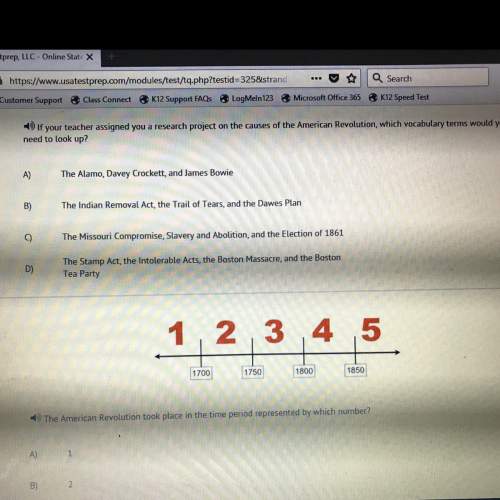
History, 22.01.2021 23:40 samvgesite
In your response, be sure to address all parts of the question. Use complete sentences; an outline or bulleted list alone is not acceptable. Use the passage below to answer all parts of the question that follows. “The classic narrative [of the Columbian encounter] can be summarized as follows: At the end of the fifteenth century Christopher Columbus discovered America, adding to the world two continents populated sparsely with ‘savages.’. . . . Then the conquistadores, few in number but courageous, conquered the Amerindian civilizations, which, for all their temples and gold, were evidently no more than paper tigers. . . . British, French, Dutch, and other European soldiers, merchants, and settlers did much the same thing in those parts of the New World not yet claimed by the Iberians. The history of the New World subsequently became the struggle of European imperialist powers for domination, and Amerindians ceased to be important. . . . [A new generation of historians, however, took] a fresh look at the origins of European imperialism, [examining] perhaps elements less dramatic than gold and God and heroes. . . . [According to these historians], in 1492 two systems, one of the Old World and the other of the New World, collided. The Old World peoples had some distinct advantages in the biological competition that followed. . . . The decisive advantage of the [European] invaders of America was not their plants or animals—and certainly not their muskets and rifles, which Amerindians eventually obtained in quantity—but their diseases. . . . These were the most lethal of the invaders of the New World in the sixteenth century.” Alfred Crosby, United States historian, academic paper published in 1993 a) Based on the first paragraph, identify ONE argument made in the “classic narrative” of the Columbian encounter. b) Explain ONE development in the sixteenth century that would support the arguments of the “new generation of historians” in the second paragraph. c) Describe ONE way in which the “biological competition” referred to in the second paragraph contributed to European imperialism in the Americas.

Answers: 2


Another question on History

History, 21.06.2019 16:30
What cultural factors do geographers consider when they study human geography? climate patterns customs elevations ethnicity language religion
Answers: 3

History, 21.06.2019 21:30
The revolutions in latin america in the 19th century resulted in political independence from europe the end of slavery in each country the establishment of stable democracies social and economic equality for all
Answers: 2

History, 22.06.2019 00:00
States' compliance with the native american reservation treaties drawn up by the federal government for the native american nations is:
Answers: 2

History, 22.06.2019 05:30
Which of the following is an example of a government’s laissez-faire approach to business and the economy?
Answers: 2
You know the right answer?
In your response, be sure to address all parts of the question. Use complete sentences; an outline o...
Questions

Biology, 05.06.2020 18:57

Mathematics, 05.06.2020 18:57


Biology, 05.06.2020 18:57


Mathematics, 05.06.2020 18:57

Mathematics, 05.06.2020 18:57



Mathematics, 05.06.2020 18:57

Mathematics, 05.06.2020 18:57



English, 05.06.2020 18:57

History, 05.06.2020 18:57

Mathematics, 05.06.2020 18:57


Mathematics, 05.06.2020 18:57


Mathematics, 05.06.2020 18:57




